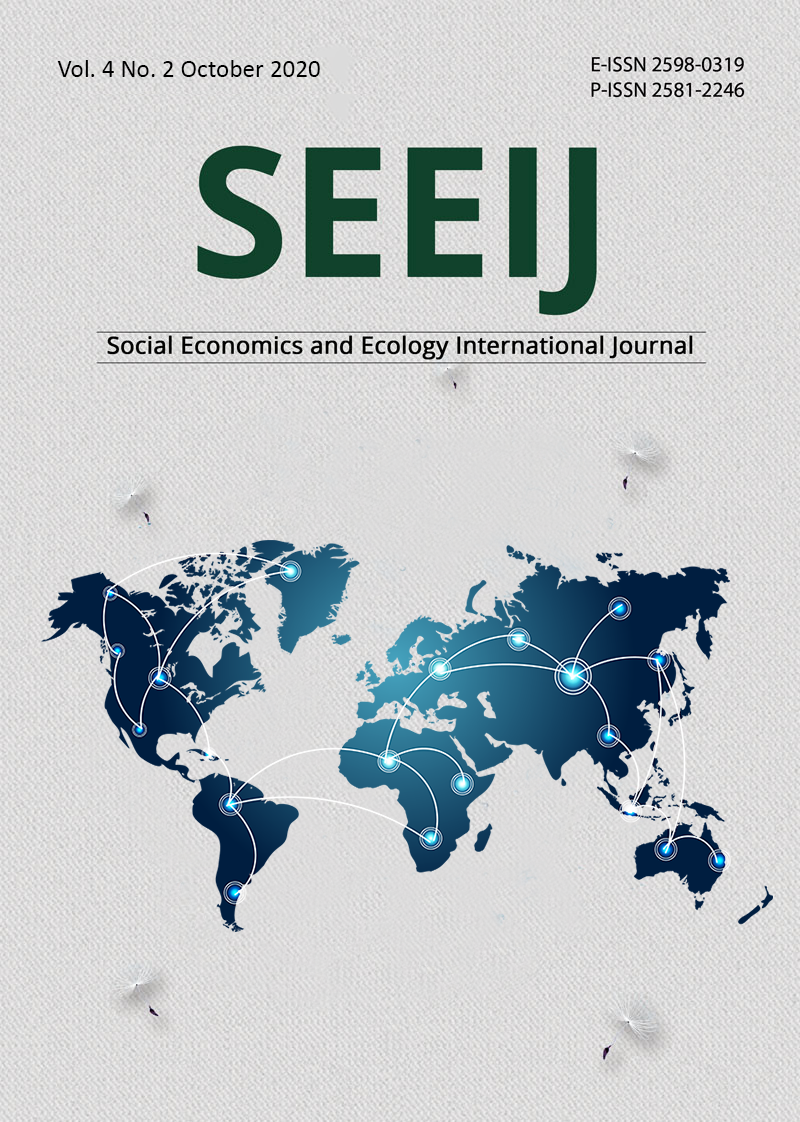Exuberant as Trend Forecast Method for Kertabumi Klinik Sampah Community Plastic Recycling
DOI:
https://doi.org/10.21512/seeij.v4i2.7361Keywords:
Exuberant, design trend, recycling product, community, kertabumi klinik sampahAbstract
Recycling movement is such a never- ending campaign. This movement are grown larger in the society whether in individual or group activities. Any of the groups with the same spirit and vision are blurred in the community to achieve wider impact of recycling plastic. One of the active campaigner is Kertabumi Klinik Sampah which well-known in tinkering any of the recycling technique within the communities around Jakarta. Communities under Kertabumi facilitation are encouraged to turned plastic waste into unique and valuable products. Fostering creativity is the idea of this research aiming to observe the possibility of trend design implementation on the plastic recycle product. Exuberant trend forecasting is used as an approach to designing functional and aesthetical aspect on the product. Moreover, the styling result is offered as a design recommendation for the community to develop their product in the future.
References
World Bank Group. 2018. Indonesia Debris Marine Hotspot, Rapid Assesment – Synthesis
Report.
Deshpande, H., Akash T., Posner, N., Oh. H. 2019. Heat-Based Fabrication Techniques for Upcycling HDPE Plastic Bags. CoDeCraft Lab Georgia Tech Project Research. Retrieved from https://gvu.gatech.edu
https://www.qualitylogoproducts.com/promo-university/different-types-of-plastic.htm
Indonesia Trend Forecasting Team. 2019. Singularity: INTERIOR Design & DÉCOR. Badan Ekonomi Kreatif Indonesia. Retrieved from http://trendforecasting.id/singularity- section/book-interior-decor-3 2019
Wibisono, S.S. 2018. Analisis Faktor Keputusan Konsumen Produk Daur Ulang. Universitas
Islam Indonesia: Yogyakarta.
Downloads
Published
How to Cite
Issue
Section
License

This work is licensed under a Creative Commons Attribution-NonCommercial 4.0 International License.
The Authors submitting a manuscript do so on the understanding that if accepted for publication, copyright of the article shall be assigned to SEEIJ Community Empowerment (CE) Bina Nusantara University as publisher of the journal.
Copyright encompasses exclusive rights to reproduce and deliver the article in all form and media, including reprints, photographs, microfilms and any other similar reproductions, as well as translations. The reproduction of any part of this journal, its storage in databases and its transmission by any form or media, such as electronic, electrostatic and mechanical copies, photocopies, recordings, magnetic media, etc., will be allowed only with a written permission from SEEIJ Community Empwerment (CE) Bina Nusantara University.
SEEIJ, the Editors and the reviewer make every effort to ensure that no wrong or misleading data, opinions or statements be published in the journal. In any way, the contents of the articles and advertisements published in the SEEIJ are sole and exclusive responsibility of their respective authors and advertisers.

This work is licensed under a Creative Commons Attribution-NonCommercial 4.0 International License.









